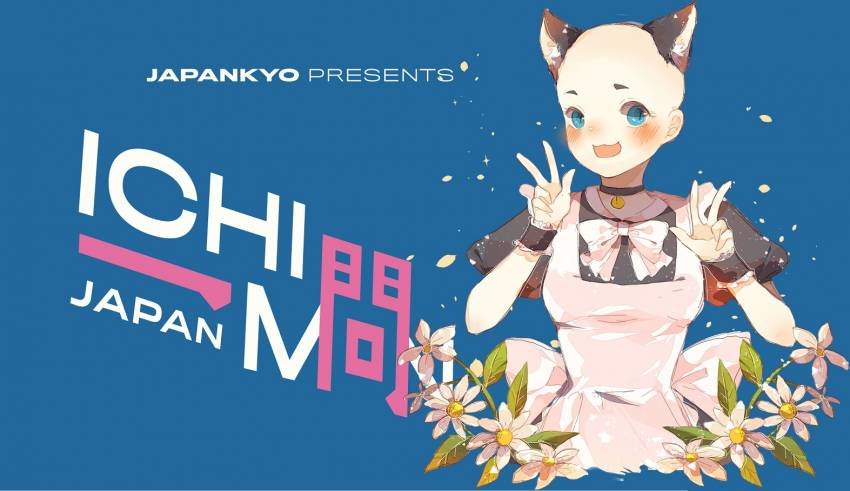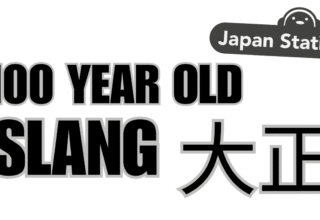
Today’s Question
On this episode of Ichimon Japan we ask: Why does to “nyan nyan” mean to “have sex” in Japanese?
Topics Discussed
- Japanese expressions/idioms related to cats
- What the Japanese expression neko no te mo karitai means and how it is used
- What pets are most popular in Japan
- The Japanese festival game of kingyosukui
- What the Japanese expression nekojita means
- What the Japanese expression nekobaba means
- What the Japanese expression nekoze means
- What the Japanese expression dorobōneko means
- Snakes falling from the ceiling of an old Japanese house
- The Sazae-san opening
- An experiment designed to find out how heavy a fish a stray cat is willing to carry
- What neko o kaburu means
- Theories about the origin of the expression neko o kaburu
- What the Japanese expression nyan nyan suru means
- The origin of the expression nyan nyan suru
- The story of Tomoko Takabe
- The Nyan Nyan Jiken (Nyan Nyan Scandal) of 1983 and its aftermath
- Erika Sawajiri
- What happened after Tomoko Takabe’s photo was published in 1983
- Underage smoking in Japan
- Why Focus chose to use nyan nya to mean sex (according to one theory)
- What nyan nyan shashin are
- And much more!
Note: It is possible that nyan nyan as it was used by Focus in 1983 was not coined with the onomatopoeia for a cat crying in mind. In fact, the term appears to have been an allusion to something Tomoko Takabe used to say. It is not clear if this original nyan nyan was an allusion to cats. However, due to the fact that without any context a person hearing the term for the first time would likely assume that it is in some way connected to cats meowing, I decided to include nyannyan in this episode along with cat-related idioms.
Listen to Ichimon Japan on
Apple Podcasts Google Podcasts Stitcher Spotify iHeartRadio PodBean Tunein RSS
Support on Patreon
If you enjoy Ichimon Japan and want to ensure that we’re able to produce more episodes, then please consider becoming a patron on Patreon.com. For a minimum pledge of $2 a month you’ll get access to exclusive content and our eternal, profound, and undrying gratitude.
Sources, Links, Videos, Etc.
The English-language article about the story of Tomoko Takabe and Focus’ coverage of the “Nyan Nyan Scandal” that was mentioned several times can be accessed via the link below. As mentioned in the episode it does have the pictures but none are explicit. That being said, the website that published the article does have a lot of explicit content that is NSFW.
Here are a couple of Japanese-language sources used for this episode.
Here is the Sazae-san opening.
The video below is a clip from the Japanese TV show Toribia no Izumi (Spring of Trivia). The clip shows an experiment conducted in order to determine how heavy a fish a stray cat is willing to carry. The idea for this experiement came from the opening of Sazae-san, which shows a stray cat stealing a whole fish. According to the narrator, the experiment was conducted over the course of three days. The heaviest fish that one of the stray cats ends up carrying weighed right around 2 kg. That fish was an oceanic bonito (katsuo). All the stray cats gave up at the 2.1 kg mark. That fish was a young tuna (mejimaguro).
To listen to either of the Ichimon Japan episodes mentioned during this episode, use the links below.
- Does “hai” mean “bye” in Japanese? (The many ways to say “goodbye” in Japanese) | Ichimon Japan 24
- What’s the deal with catgirls? (About nekomimi) | Ichimon Japan 01
To listen to the latest episode of Japan Station, use the link below.
Japanese Vocabulary List
Most episodes feature at least one or two interesting Japanese words or phrases. Here’s some of the ones that came up on this episode. All information is from Jim Breen’s WWWJDIC.
- Neko
- 猫 【ねこ(P); ネコ】 (n) (1) cat (esp. the domestic cat, Felis catus)
- Te
- 手 【て】 (n) (1) (occ. pronounced た when a prefix) (See お手・おて・1) hand; arm
- Neko no te mo karitai
- 猫の手も借りたい 【ねこのてもかりたい】 (exp,adj-i) (id) extremely busy; wanting even the help of a cat
- Kingyo
- 金魚 【きんぎょ】 (n) goldfish
- Kingyosukui
- 金魚すくい : 金魚すくい; 金魚掬い 【きんぎょすくい】 (n) festival game in which participants try to catch goldfish in a shallow paper ladle
- Nekojita
- 猫舌 【ねこじた】 (n) dislike of very hot food or drink; inability to take hot food; cat tongue
- Kuso/baba
- 糞 : 糞(P); 屎 【くそ(P); クソ(P)】 (int) (1) (uk) (col) bullshit; shit; damn; (n) (2) (col) (uk) feces; excrement; dung; (adj-f) (3) (uk) (col) damn; damned; blasted; stupid; (4) (sl) (uk) very; extremely; (adv) (5) (sl) (uk) a lot; (exp) (6) (uk) (as ~もくそも(ない)) not at all; not even a little; (P); : 糞; 屎 【ばば】 ; (n) (1) (vulg) (uk) (osb:) shit; crap; (2) (chn) (uk) pooh-pooh; poop; something dirty; 【ふん; フン】 ; (n) (uk) feces (esp. animal); excrement; dung
- Babā
- 婆 : 婆; 婆あ 【ばば(婆); ばばあ; ババ; ババア; ばばー; ババー】 (n) (1) (uk) (See 祖母) old woman
- Nekobaba
- 猫ばば : 猫ばば; 猫糞 【ねこばば; ネコババ】 (n,vs) (uk) embezzlement; misappropriation; pocketing; stealing
- Nekoze
- 猫背 【ねこぜ】 (n,adj-no,adj-na) bent back; hunchback; stoop
- Dorobōneko
- 泥棒猫 : 泥棒猫; 泥棒ネコ; どろぼう猫 【どろぼうねこ(泥棒猫,どろぼう猫); どろぼうネコ(泥棒ネコ)】 (n) (1) thieving cat; (2) (derog) adulterer; homewrecker
- Neko o kaburu
- 猫を被る : 猫をかぶる; 猫を被る 【ねこをかぶる】 (exp,v5r) (id) (See 猫被り) to feign friendliness; to play the hypocrite
- Mushiro
- 蓆 : 筵; 蓆; 莚; 席 【むしろ; えん(筵)】 (n) (1) woven mat (esp. one made of straw); (2) (arch) seat
- Nyan Nyan Suru
- にゃんにゃんする from にゃんにゃん (int) (1) (on-mim) meow; miaow; (n) (2) (chn) cat; (n,vs) (3) (sl) sexual intercourse; making out
- Jiken
- 事件 【じけん】 (n) event; affair; incident; case; plot; trouble; scandal
- Raburabu
- ラブラブ (adj-na,adj-no,n,vs) (col) lovey-dovey (wasei: love love); head-over-heels in love
- Koneko
- 子猫 : 子猫(P); 仔猫; 子ネコ; 小猫; 子ねこ; 仔ネコ 【こねこ(子猫,仔猫,小猫,子ねこ)(P); こネコ(子ネコ,仔ネコ); コネコ】 (n) (1) kitten; (2) small cat
We Want Your Questions
Is there something about Japan that confuses you? Is there something about Japanese culture that you would like to learn more about? Is there something in Japanese history that you would like us to explain? We’re always looking for new questions about Japan to answer, so if you have one, please send it to ichimon@japankyo.com.
Special Thanks
Opening/Closing Theme: Produced by Apol (YouTube, Twitter, Facebook, Fiverr)
Ichimon Japan cover art: Produced by Erik R.
Featured image: An original catgirl character named Hagenyan next to the Ichimon Japan logo. Hagenyan was drawn by rept_u (@rept_u on Twitter and @repp_u on Instagram) based on an original concept by Tony Vega. Check out rept_u on Fiverr, if yo too want some awesome artwork.
Follow Japankyo on Social Media
Full Show Notes














